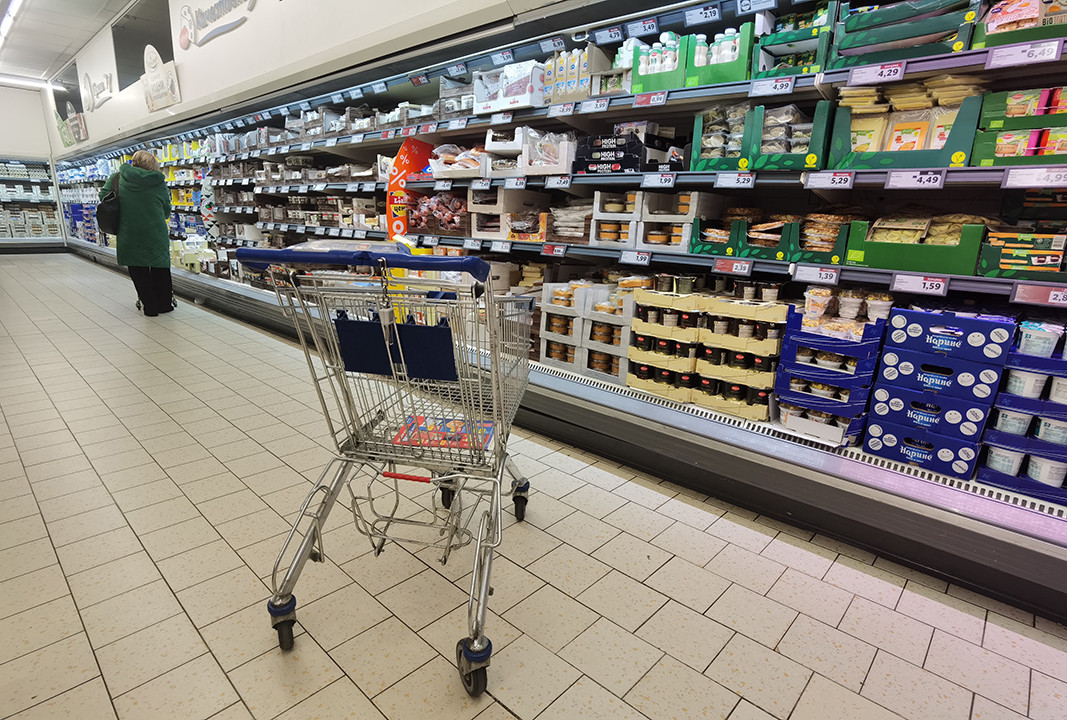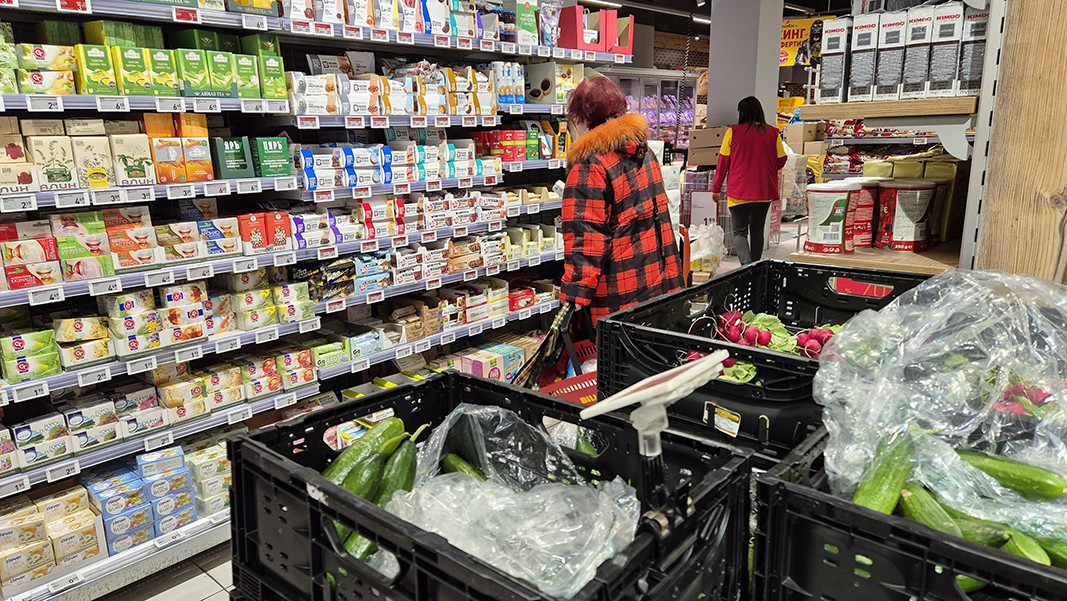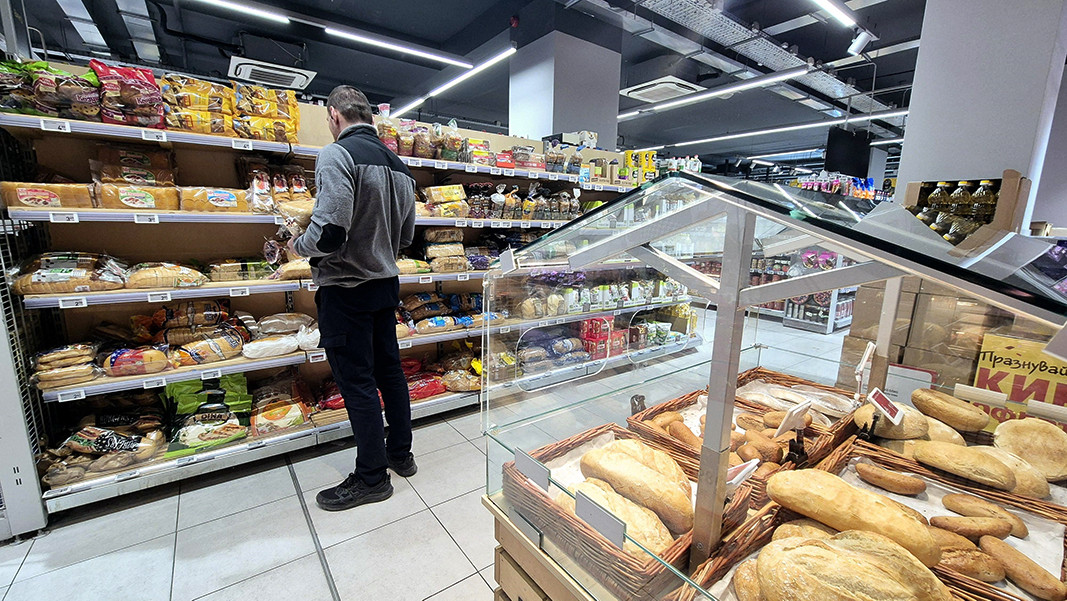“On 13 February this year, Bulgarian consumers must not shop at any of the grocery stores, at any of the chain stores, at any of the supermarkets! On 13 February grocery stores must be left empty, with not a single buyer in them,” the organizers of a national boycott of chain stores - the movement “The system is killing us”, the Allied Pensioners Unions and the Federation of Consumers in Bulgaria - urge on social media. The boycott comes in the wake of the consumer boycotts in Croatia and in other Balkan countries – like North Macedonia, Montenegro, and Bosnia and Herzegovina.
As a matter of fact, it is true that Bulgarians are unhappy with the growing prices of essential products, but their protest is also against the fact that salaries in the country have been lagging behind.
“Consumers in Bulgaria are hit hardest, out of the entire European Union, and what I would like to see now, with this consumer boycott, is an understanding that we are not second or third rate consumers,” says Emil Georgiev from the Federation of Consumers in Bulgaria, and goes on that he expects 60% of the consumers in the country to join the boycott. The creeping inflation since the beginning of the year at leading chain stores and markets is something all consumers have taken note of. The people affected most are the 800,000 pensioners living below the poverty line, as well as the working poor. 
The trade unions and the organization of consumers cite National Statistical Institute data, saying that Bulgaria remains the poorest country of the EU, while the prices of essential commodities like milk, cheese, eggs and meat are among the highest in Europe. Some MPs proposed legislative measures to cap surcharges, but only for big chain stores with an annual turnover of more than 10 million Leva (EUR 5.11 million), and the idea divided opinion in parliament.
The popular discontent with the rise in prices was joined by the presidential institution, with Vice President Iliana Iotova describing people’s indignation as justified. “Something obviously has to be done as soon as possible, because prices are at least 30% higher than they were before the New Year,” she said and added that she expected the issue to be subject to a broad public discussion, and the government to take urgent steps.
But what does the average person think of the idea of boycotting shops on 13 February? A Radio Bulgaria vox pop takes a look:
“Prices do not correspond to people’s incomes, they are too high,” says Roza Stoyanova, a pensioner from Sofia. “I hope the boycott helps, if it doesn’t, then there will be another boycott.”
The feeling that prices are eating away at their family budget motivated people to join the call not to shop on one particular day.
“I believe the boycott will have an effect, if more people stand against the illegitimate rise in prices then shops would think twice whether there might be legal consequences from the speculation on prices,” says Pavlina Ikonomova from Sofia. “And, yes, I would join the boycott too. I do not support this kind of cap on surcharges but I do want prices to be normal, you can’t buy commodities at a low price, only for dealers and tradespeople to then grab a big profit. The high prices when your income is low drive ordinary people to look for ways to save money, to the detriment of the quality of the goods they buy.”
“Certainly, prices have gone up, it is obvious,” agrees Eleonora Ivanova, a mother from Sofia. “This is my second year of maternity leave but I don’t think the maternity pay – 780 Leva a month (a little under EIR 400) is enough to raise a child on, and to support myself. If they have only that sum to rely on, then every mother in the country would fall into the category of the socially disadvantaged. Incomes must go up. I always used to work on a contract, though a lot of the time my social security installments were on a minimum salary, irrespective of my work experience or my education. What I mean is that there are still a lot of employers in this country who do not evaluate the work of their employees properly – that is an issue that really should be addressed.”

There are people who are skeptical about imposing measures on chain stores. There should also be regulatory mechanisms for the supply chains. Many of Bulgaria’s vegetable producers, for example, are finding it difficult to sell their produce to big traders directly because they are unable to provide the necessary amounts. That is where retail middlemen come in, putting a surcharge on the product. This stretches the supply chain, which has a direct effect on the price, and ultimately hits buyers in the wallet.

“I am coming back from the store right now, and I saw that the prices continue to be high,” says Angel Stefanov from Sofia. “When you take a look at these prices you immediately think there has to be some kind of cartel among the chain stores. On the other hand, when we hear milk producers have their milk bought from them for 80 stotinki per litre, and then we see the price of cheese in the shop – at 30 Leva a kilo or more – that means that somewhere along the line there is someone who is not playing by the market rules. If the government puts direct measures in place, that is not going to solve the price problem, on the contrary, it is more likely to lead to bankruptcies.”
And while people are wondering whether to join the boycott or not, experts are not sure whether it is going to have any real effect on the market at all. The question that looms large is whether boycotting shopping and price caps aren’t going to lead to the bankruptcy of small neigubourhood shops – and this would actually drive more shoppers to the chain stores, which currently account for 35% of the market in Bulgaria.
Translated and posted by Milena Daynova
Photos: BTA, BGNES
The total wealth of Bulgarians has not reached over 1 trillion Leva, indicates a recent survey by the Expert Club of Economics and Politics. This is almost five times the size of the country’s gross domestic product, analysts calculate. In the space..
The Festival of Ancient Heritage "Eagle on the Danube" will carry out its most ambitious edition so far – “The Legions of Moesia”. It will be held from June 13 to 15 at three ancient fortresses on the territory of Pleven district. These are Storgosia..
By decision of the Council of Ministers, the deadline for the implementation of the activities under the National Programme for Polar Studies “From Pole to Pole” 2022-2025" has been extended until the end of 2027, BTA reported. According to the..
EU Ambassador to Skopje launches construction of new border crossing The construction of the EU-funded border crossing Markova Noga – Lemos..
The most significant step towards Bulgaria's membership in the eurozone has been made – this country has received official confirmation..
540 cheerleaders will transform the town of Pazardzhik (Southern Bulgaria) into a true stage of grace, rhythm and color. Over the course of two days (June..

+359 2 9336 661
